

OM hrim krom aim grhanathaya budhaya svaha
Learning Pathway of
signs & handcraft
critical apparatus
बुध बौध budha
Professor Budha
Parya - Parthya - Pana - Paranaya
विद् vid = learn, declare, inquire, announce, report, explain [wit]
बोधन bodhana = instructing, informing
ज्ञ jña = thinker [said also of Mangala]
इन्दुज indu-ja = born of Moon [Indu]
श्यामाङ्ग śyāma-aṅga = black-bodied
पञ्चार्चिस् pañca-arcis = having five rays
Mercury the Merchant
Hermes - Thoth [Tat]
Merx - Mark - Merch
sMargara - sMarjali - Marketa - Margareta
Enki = Nabu - Neba - Sabgu - Borsippa
Odin - Woden [Wednesday]

Vimshottari Dasha - Rashi - Gochara - Bhava - Graha - Ratna - Nakshatra - Amsha - Karaka - Varga - Bala
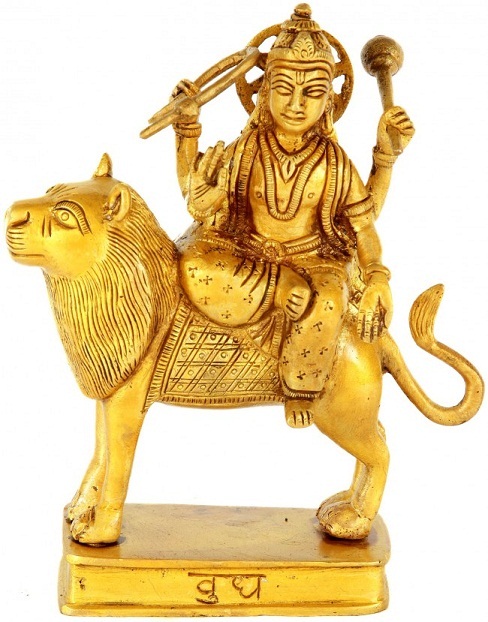
Budha Mercury
brass statue from ExoticIndia.com


BPHS Sarga-3, shloka-2 6
" Budhi is endowed with an attractive physique
and the capacity to use words with many meanings.
He is fond of jokes.
He has a mix of all the three humors." [end quote]
en.wikiquote.org/wiki/Sumerian_proverbs#Proverbs_from_Nibru
"Talking endlessly is what humankind has most on its mind."

Venn Diagram showing common English phrasing used for diverse professional purposes
" ... for there is nothing either good or bad,
but thinking makes it so. ..."
~~ Hamlet Act 2, scene 2
" Whether you think you can, or you think you can't,
you are correct ..."
~~Ford Motor Co. 1863-1947 assembly line Henry Ford
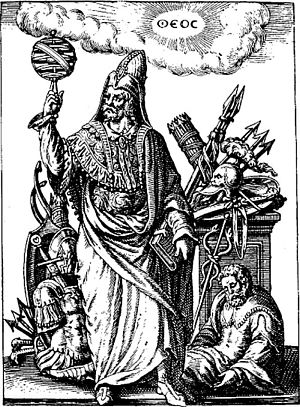
Hermes Tris-megistus
= Ἑρμῆς ὁ Τρισμέγιστος = Kybalion
You may grow old and trembling in your anatomies, you may lie awake at night listening to the disorder of your veins, you may miss your only love, you may see the world about you devastated by evil lunatics, or know your honour trampled in the sewers of baser minds.
There is only one thing for it then — to learn. Learn why the world wags and what wags it.
That is the only thing which the mind can never exhaust, never alienate, never be tortured by, never fear or distrust, and never dream of regretting.
Learning is the only thing for you. Look what a lot of things there are to learn.”
~T.H. White, The Once and Future King
Illumination depicting Mercury as a medieval European knight,
from the alchemical Splendor Solis manuscript
by Vollnagel, 1577-CE
"The reality that you live
is nothing more than an audio-visual demonstration of where your attention is.
The universe presumes that your attention is on what you want and graciously provides you with more of the same."
~~ Control, mission. E.T. 101: The Cosmic Instruction Manual (p. 31). Intergalactic Council.
The Book of Proverbs = Mishlei Shlomo, 3:21-23
"My son,
preserve sound judgment and discernment,
do not let them out of your sight;
they will be life for you, an ornament to grace your neck.
Then you will go on your way in safety,
and your foot will not stumble."
6th from Budha should be also considered in regard to indications derivable from Ari Bhava.
Sandesha-karaka
-
Budha is responsible for scheduled Learning Experiences in the School-of-Earth Curriculum.
Studies supervised by The Kumara are designed to develop Mastery in topics such as
-
message, measure, media, manipulation, legerdemain, management, mentality
-
The Commentariat
-
students, pupils, disciples
-
prophetic - interpretative - prattle
-
scholarship, inquiry, inquest, questionnaire
-
explanations, interpretations, descriptions, instructions
-
calculations, computations, modeling
-
commercial endeavors = merchandise, mercado, market, marché
-
Polarities, pairs-of-Poles, Halves, couples, complement
-
hands, handling, manipulation, massage, management, manufacturing, dexterity, manual skill
-
Double, duplicate, diploma, duality, doppelganger, digitization
-
Twin, twice, twixt, twist, twine, two
-
Derivations, derivatives, versions, conversation, turning
-
doublings, duplicity, dualism, diplo-ma (double-folded paper)
[lagnesha for Kanya indriya-lagna]
[lagnesha for Mithuna indriya-lagna]
All Thought Is Prayer
[energizing-identifying lagnesha for Kanya indriya-lagna]
[collecting-evaluating dhana-pati for Urisha indriya-lagna]
[historical-evaluating dhana-pati for Simha indriya-lagna]
[collaborative-communicative sahaja-pati for Mesha indriya-lagna]
[busy-managing vikrama-pati for Karkata indriya-lagna]
[homebound-anchoring bandesha for Mithuna indriya-lagna]
[homebound-anchoring bandhesha for Meena - Antya indriya-lagna]
[witty-creative vidya-pati for Urisha indriya-lagna]
[theatrical-displaying vidya-pati for Kumbha indriya-lagna]
[inimical-medicating rogesha for Mesha indriya-lagna]
[inimical-medicating rogesha for Makara - Draco indriya-lagna]
[bargaining-balancing jaya-pati for Dhanus - Haya indriya-lagna]
[trading-advocating jaya-pati for Meena - Antya indriya-lagna]
[mysterious-revealing randhresha for Vṛścika indriya-lagna]
[secretive-transforrmative randhresha for Kumbha indriya-lagna]
[philosophical-doctrinal dharmesha for Tulā indriya-lagna]
[believing-preaching dharmesha for Makara - Draco indriya-lagna]
[dutiful-hierarchical karmesha for Kanya indriya-lagna]
[dutiful-commanding karmesha for Dhanus - Haya indriya-lagna]
[profitable-friendly labha-pati for Simha indriya-lagna]
[friendly-economic vriddhi-pati for Vṛścika indriya-lagna]
[retreating-visionary vyaya-pati for Karkata indriya-lagna]
[retreating-contemplative vyaya-pati for Tulā indriya-lagna]
Budha stotra
Priyangu Kalika Shyaamam Roopena Pratimam Budham
Soumyam Soumya gunopetam tam Budham Pranamamyaham
" The root function of language is to control the universe by describing it."
~~James Baldwin, Stranger in the Village

Depths of the Sacred Forest - 矶野宏夫 Isono Hiroo, 1945–2013

Professor Budha's Narratives
CLASSROOM RULES and LEARNING-PLAN CONDITIONS
-
[Budha in bhava-1] = [dikbala] narrative of embodiment * bifurcated self-image * discusses physical appearance * describer of embodiment * explainer of tangible self * delivers instructions for self-characterization * articulation of communicative movement * animated gestures * talks about personality * details the two-sided identity
-
[Budha in bhava-2] narrative of values-fulfillment * conversations about natural resources * talks about history * instructions for asset conservation * explains banking procedures * cherished recordings * discusses sound values * articulation of speech-song * quick-darting eyes-face * tells stories * defines storage methods * describes family lineage * manual preservation of collections * chats about knowledge base * conserves libraries * quick with language * manages archives * repeats from memory
-
[Budha in bhava-3] = [svabhava]narrative of cohort collaboration * chatty siblings * articulate announcements * discusses commerce * instructions for management * conversations about information technology * clever programming * logical reporting * talks about daily business * handles information * skillful printing * scripted dialog * text instructions * writes lyrics * detailed media-messaging * communication tactics * explains marketing * quick manufacturing * descriptive process * signaling gestures
-
[Budha in bhava-4] narrative of cultural roots * skillfully describes parochial routines * delivers ritual instructions * discusses protective caretaking * talks in rhythmic comfortable style * analysis of foundational security * conversations about defense * skilled handcraft of fenced shelters * explainer of homeland customs * patriotic slogans * detailed communication about nourishment * team collaboration in farming-and-fishing * transportation scheduling * seasonal planning * familiar sibling conversations
-
[Budha in bhava-5] narrative of splendid signaling * discusses entitlements * self-referential conversations * describer of divine intelligence * explainer of romance * delivers political instructions * writes poetry * proclaims love * defines creative literature * plays games * discusses fame * lectures about idealism * debates with royalty * chats with children * publishes unique opinions * articulator of artistic performance * declaims with radiant confidence
-
[Budha in bhava-6] = [svabhava]narrative of detailed complaint * explains toxicity * logically discusses conflict * communicative misconduct * medical treatment procedures * military strategy * cleverly manipulative litigation * itemized argument * mislabeled documents * precisely specific accusation * treacherous dialog * describes broken promises * instructs on ministries of service * talks about injustice * articulately gesturing adversaries * debates about debt
-
[Budha in bhava-7] narrative of partnership * discusses contracts * debates on deals * analysis of relationships * discourse on trusts and treaties * banters about betrothal * crafting of covenants * delivers negotiating instructions * explainer of arrangements * talks about fairness * advocate for justice * gestures toward settlement of quarrels * mentality of marriage * formulates alliances * defines equity * balanced bargains
-
[Budha in bhava-8] narrative of forward evolution * mysterious information * unexpected eruptions of factual data * shocking revelation * emergency messages * writes about revolutionary cycles * speaks-and-sings about dynamic rebirth * detailed discoveries * describes transformative change * explains initiation * delivers instructions for new identity * hand-arm gestures signal healing renewal
-
[Budha in bhava-9] narrative of father-figure * witty guru * broad-scope communicator * repeats the catechism * ideological reasoning * reiterates the doctrine * skillful grandchildren * discusses patronage * detailed articulation of worldview * explains the paradigm of belief * talks about sacred texts * examines the dharma * interprets theoretical claims * delivers quick sermons * logical investigations into philosophical truths * chatty priests * religious dialogues
-
[Budha in bhava-10] narrative of leadership process * makes official pronouncements * describes social responsibilities * conversations about policy decisions * prominent spokesperson * talks about maintaining order * explainer of governance * detailed executive announcements * delivers lawful information * chats about social authority * scripted hierarchical management methods * dignified sibling-cohort * reputation for writing * institutional publicity communications
-
[Budha in bhava-11] narrative of marketplace information * describes ecological gridwork * calculates economic profit * reports on revenues * describes distributive networks * talks about social participation * Sibling-type friendships * conversations about voluntary connections * announces achievements * delivers interlinking instructions * discussion in large assemblies * defines the webworks of community
-
[Budha in bhava-12] narrative of mental sanctuary * talks about quietude * commerce of the hermitage * discusses interior spiritual guidance * speaks from invisible location * instructions on reflective contemplation * detailed descriptions of intimate privacy * diagrams the astral inner terrain * explainer of quiet prayer * imaginative siblings * communication with distant worlds * delivers information about clairsentience and claircognizance * skillfully defines the dreamworld * logical visions

Green Tara
-
[Budha-Mesha] innovative communications * pioneering pronouncement * articulation of dynamic movement * discusses physical experience * vigorous descriptive explanations * growth-challenging conversation * messages about contests * vocabulary of vitality * hands-arms-shoulders send competitive gestures
-
[Budha-Urisha] financial communications * articulation of tonal value * talks about stored goods * discusses collected assets * delivers descriptive evaluations * sends historic messages * skillfully signals the music * preservation methods * describes sound frequencies * hands-arms-shoulders send sensual gestures
-
[Budha-Mithuna] = [svakshetra]business communications * articulation of specific instructions * informative pronouncements * messages about commerce * hands-on management * signaling explanatory information * detailed diagrams * talks about publication * interpretative interactions * commercial translation * hands-arms-shoulders send descriptive gestures
-
[Budha-Karkata] customary communications * hand-arm-shoulders make protective gestures * rhythmic articulation of root culture * discusses ancestral morality * prescriptive routines * argues for foundational stability * describes protective fencing * parochial talk * converses about caretaking * environmental wardens * issues familiar pronouncements * delivers land-use information * patriotic declarations * habitually chats about the local settlement
-
[Budha-Simha] political communications * articulation of unique creativity * delivers celebratory announcements * manufacturers bright displays * explains celebrity entitlements * romantic messages * declares poetic adoration * delights in glittering phrases * manages entertainments * details the procedure for theatrical amusements * speaks with royal flamboyance * talks about gambling * plays intelligent games * hands-arms-shoulders send dramatic gestures
-
[Budha-Kanya] = [uchcha] + [svakshetra] + [mūlatrikoṇa within 16-20 deg = Hasta-3] * ministering service communications * articulation of digestive process * talks about aid to the suffering * formulates descriptive complaints * precise programmatic conversations * delivers detailed pronouncements * grammatical expertise * logical arguments * messages about accuracy * specifies error * hands-arms-shoulders make helping gestures
-
[Budha-Tula] partnership communications * articulation of contracts * equable discussions * balanced designs * commercial arrangements * explains procedure for fair agreements * descriptive bargaining * skillful matching * accommodating conversations * messages about negotiation * programming for trade exchanges * manufactures harmonious patterns * hands-arms-shoulders send equalizing gestures
-
[Budha-Vṛścika] secretive communications * articulation of transformative process * emergency pronouncements * delivers messages about dangerous situations * describes mystical initiation * discusses undisclosed mysteries * articulately defined masking * gives instruction for penetrating procedures * expertly detailed disguise * hands-arms-shoulders make occult gestures
-
[Budha-Dhanus] priestly communications * theoretical discourse * inspirational conversations * articulation of sacred beliefs * doctrinal pronouncements * sends messages about broad worldview * descriptive philosophical understanding * specifically defined interpretive principles * explains the indoctrination procedure * expertly detailed sermons * ideological programming * hands-arms-shoulders send preaching gestures
-
[Budha-Makara-Draco] bureaucratic communications * articulation of lawfully orderly process * proletarian phrasing * delivers procedure for imposing rules * descriptive explanations of the social order * messages about governance * documentation of regulatory procedures * diagrams the hierarchies * status-conscious mentality * hands-arms-shoulders send normalizing gestures
-
[Budha-Kumbha] connecting communications * systematic pronouncements * articulation of social-scientific networks * descriptive inter-webbed definitions * diagrams the marketplace linkages * futuristic conversations * messages about communities * discusses economic transactions * explains social participation linkage * large-scale logic * skilled weaving * deft knitting * hands-arms-shoulders make connective gestures
-
[Budha-Meena ] = [nīcha] intuitive communications * articulation of private spiritual guidance * imaginative pronouncements * explains the astral patterns * abstract conversations * symbolic information * foggy thinking * psychic instructions * meditative messages * describes visionary procedures * fuzzy logic * hands-arms-shoulders send dreamlike gestures
-
[Budha-yuti-Surya] illuminating explanations * entertaining chatter * central roles in communication * brightly clear descriptions * dramatic enunciation * confidently delivers instruction * articulation of radiant certainty * political messenger * talkative father-figures
-
[Budha-yuti-Chandra] explainer of feelings * mentalized caretaking * communicative parenting * familiar rhythmic phrasing * ancestral instruction * writes sensitive speeches + songs * soothed by scheduling * sensitive merchandising * needs to plan * describes the comfortable routines * responsive siblings * intuitively talkative mother
-
[Budha-yuti-Mangala] competitive communications * scripted actions * impatient conversations * potential for sexualized messaging * penetrating explanations * direct instruction * dominating dialog * signals forward action * pioneering logical movement * energetically outspoken opinions * talkative brother-figures
-
[Budha-yuti-Guru] explainer of ideology * descriptive preaching * professorial explanations * theoretical discourse * instructs in sacred doctrine * articulation of charitable generosity * optimistic messages * expansive scope of documentary reporting * inspirational media communication * numerous specific announcements * detailed guidance * verbalizing paternal figures
-
[Budha-yuti-Shukra] explainer of balanced arrangements * diplomatic conversations * parity-seeking discussions * manual adjustments * enjoys words * sweet descriptions * delivers instruction about relationships * articulator of equity in agreements * message of fairly bargained contracts * skilled in songwriting * talkative sister-cousin-cohort * detailed lyricist * attracts chatty partners
-
[Budha-yuti-Shani] explainer of rules * dictates about system requirements * regulatory roles express communication skills * lawful planning * slow scheduling * conventional conversations * message of institutional order * mature management * makes necessary announcements * cautious gestures * talkative elders
-
[Budha-yuti-Rahu] thrillingly risky narrative * culturally mixed communication skills * ambitious descriptions * exotic instructions * desire to explain fascinating facts * message of exciting opportunities * chatty foreigners * documents the dialog of outsiders * talkative interlopers
- [Budha-yuti-Ketu] mentally disconnected * explainer of impermanence * describes dissociation * articulates the process of dissolution * evacuated meeting spaces * incoherent conversations * sends prayers to the ineffable * apathetic narratives * script of martyrdom * spacey siblings * surrenders the attempt to render a complete message * speaks as the observing Witness * may channel the talkative spirits
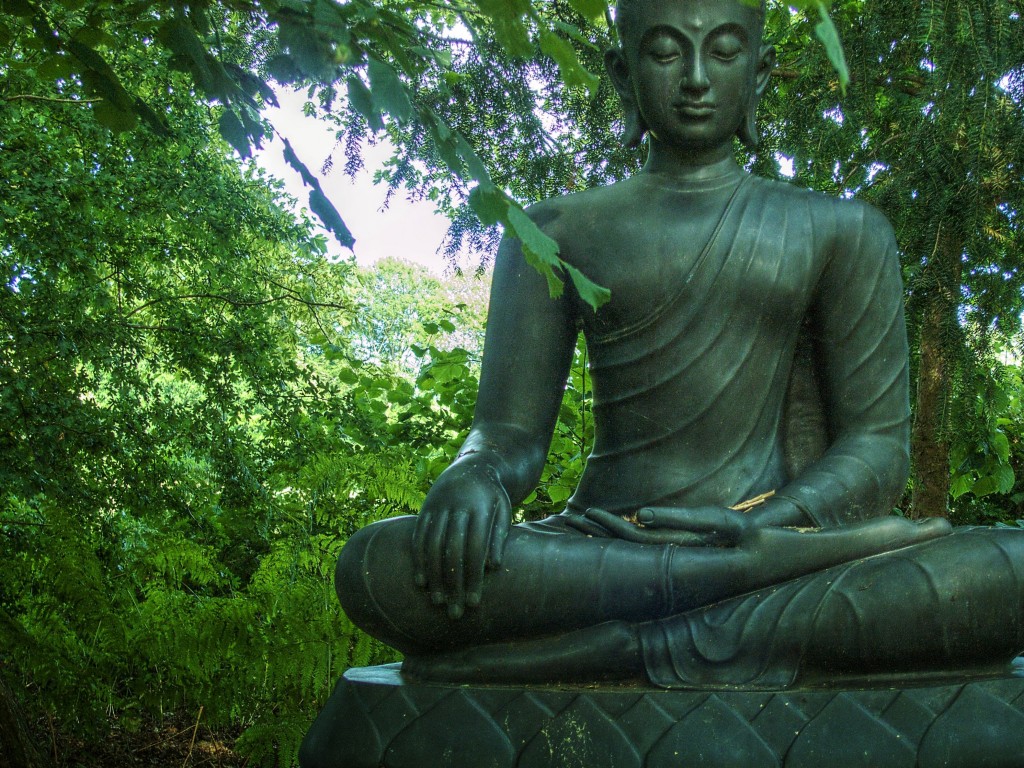
बुध NAMES FOR BUDHA
Names for Offspring of Chandra = son of Moon
शशाङ्कतनय śaśāṅka-tanaya = offspring of Moon
शशाङ्कज śaśāṅka-ja = offspring of Moon
शशिज śaśi-ja = offspring of Moon
राजपुत्र rāja-putra = offspring of king [= Chandra]
सोमराजसुत soma-rāja-suta = offspring of the Lord of Soma
सोमपुत्र soma-putra = offspring of Moon
चन्द्रज candra-ja = born of Chandra
रोहिणीसुत rohiṇī-suta = son of Rohiṇī
रोहिणीभव rohiṇī-bhava = born of Rohiṇī
शीतगुतनय śīta-gu-tanaya
शीतरश्मिज śīta-raśmi-ja = born by ray of light from Moon
इन्दुनन्दन indu-nandana = son of Indra = Moon
ऐन्दव ainda-va = related to Indra/Chandra, moon-going
NAMES FOR GOLD
हिम्न himna
हेम्न hemna
हेमन् heman = hermes
OTHER NAMES and PHRASES
एकदेह eka-deha = having a singular or beautiful form
नक्षत्रपति nakṣatra-pati = nakshatra master
êतुहिनकिरणपुत्र tuhinakiraṇa-putra = monsoon, Budha
रोधन rodhana = obstruction, impedance
सौम्यवार saumya-vāra / बुधदिन Budha-dina = day of Budha
= wednesday
apparatus chinery
mechanisms
maneuvers
Professor Indujab = duplicator and copier
He produces doubles and couples such as siblings and sibling-figures like teammates, office-mates, ensemble players
and those who work in coupled setting such as police-patrol, co-pilots, or other jobs that must be done in cross-trained, dual-competence sets of two.
Budha makes layers which inter-relate and connect with each other.
Budha = Ply = /layer/
- Duplication, replication, multiplication, application.
Budha the Messenger
Conversational, turn-taking Professor Budha is very respon sive.
- " spon/span" = answer within a paired set.
- Answer = a swearing, asaying.
Budha-Aindava always adapts to the company He keeps.
-
Budha the Evangelist delivers the message; makes the announcement; tells the news
-
Often Budha has technically composed the message as well, but normally Budha forms His message in con-sultation, co-laboration and co-operation with others in the ensemble
-
Budha speaks, thinks, writes, and gestures
-
Rashi pati (sign lord), incoming drishti, and co-tenants of the house are exceptionally influential upon Budha and Chandra
Budha the Exchanger = professor of Commerce * Mercury-Mercantile
-
count and measure Bhava-specific commodities
-
count and measure using Bhava-specific instruments
-
handcraft, transmission, transaction, transfer, exchange
In the Persian-Arabic-European traditions, chattering Kumara is associated with the metal called Mercury.
QUOTATION from Crazy Wisdom , p. 114-115
by Shambala 1939-1987 Tulku Chogyam Trungpa
"Natural inquisitiveness is being eager to learn and eager to explore.
It is not learning in the sense of collecting information; rather, it is absorbing what is happening around us, constantly relating to it.
In this kind of learning, we do not at all learn things so that we can use them at some point to defend ourselves.
In this case, we learn things because they are pleasurable to learn, fantastic to learn."
[Budha-Mesha] articulates a narrative of Sports business, products for adolescents, inventions; mentality of innovation, competition, and vigorous pursuit
-
Gitanjali 1861-1941 lyrical poet Rabindranath Tagore [publishing-explaining Aśvini-3] + [uchcha-Surya-yuti-Shukra] + + [Budha-9 parivartamsha Kuja-11 ]
-
entl 1942- drama-song-activist Barbra Streisand [dramatizing-displaying Bharani-1] + [uchcha-Aśvini-Surya-yuti-Budha-Bharani-asta] + + [Mithuna-Kuja-10 parivartamsha Mesha-Budha-8] ++ Kuja occupies 3rd from Budha
-
Principia Mathematica 1872-1970 philosopher Bertrand Russell [algorithmic-defensive Aśvini-4] + [Budha-yuti-Shukra] writing about new ideas [Mesha-5, new ideas] Known for his political pursuit of social justice goals [Shukra-5 ceremonial justice] particularly a lifetime of anti-war political activism, physical protest marches [Shukra swap Mangala] and energetic letter writing campaigns, radio discussions [Budha-5]
[Budha-Urisha] articulates a narrative of bankers, collectors, herders, cattle, animal genetics business; mentality of historical lineage; protocols for hoarding and accrual of value through logical process of accumulation
-
Das Kapital 1818-1883 economics Karl Marx [pioneering-champion Rohiṇī-1] + [Rohiṇī-Budha-yuti-Shukra-Kṛttikā ] KM wrote about money, hoarding, evaluations, history
-
The Tower 1865-1939 Symbolist poetry William Butler Yeats [champion-pioneer Rohiṇī-1] [10, public figure, government service, social programming]
-
POTUS-41 All the Best 1924-2018 George H.W. Bush [profitable-connected Kṛttikā-3] + [Mriga-Surya-yuti-Budha-Kṛttikā] + [Kṛttikā-Budha-7 parivartamsha Puna-Shukra-8] GWHB wrote oodles of financial reports
-
Silly Love Songs 1942- Beatle Paul McCartney [theatrical-demonstrating Mriga-1] + [Mriga-Budha-yuti-Shani-Rohiṇī] PM wrote simple beloved songs, many many songs.
-
Archbishop of Canterbury 1950- poet Rowan Williams [populist-profitable Kṛttikā-3] + [uchcha-Rohiṇī-Somana-yuti-Budha-Kṛttikā] RW wrote about literary values, historical knowledge, heritage values, storytelling [6, social justice argumentation]
-
Faith 1963-2016 singer-songwriter George Michael [rhythmic-protective Rohiṇī-4] + [Rohiṇī-Budha-yuti-Shukra-Rohiṇī] [12] GM wrote popular, danceable love-songs, many many songs.
-
UK Duke 1982- William Wales [financial-heritage Rohiṇī-2] = [vargottamsha] + [Kṛttikā-Shukra-yuti-Budha-Rohiṇī]
[Budha-Mithuna] articulates a narrative of commercial media messaging, announcements, business advertising, sales, marketing, conferences, cinema, publishing; mentality of explanation, instruction, diagram, demonstration. Superb short-form, techical writers
-
14th Dalai Lama 1935- Policy of Kindness Tenzing Gyatso [diplomatic-adjusting Mriga-3] + [Surya-yuti-Ketu] technical philosophy
-
My Inventions 1856-1943 Nikola Tesla [hidden-exploratory Mriga-4] + [Budha Kopā Avaṣṭabdhā] [Shani-yuti-Surya + [Budha-yuti-Shukra] technical engineering
-
Germany Bundeskanzlerin 1954- Angela Merkel [networking-profitable Arudra-3] + [Guru-yuti-Ketu] technical policy
[Budha-Karkata] articulates a narrative of commercial agriculture, fishing, house-holding, transportation; mentality of safety, parenting, caretaking, parenting, routines, boundary protection and defense of a way of life ; instruction in nationalism and customary folkways = talks about ancestral habits, security, patriotism
-
POTUS-30 Price of Freedom 1872-1933 Calvin Coolidge [habitual-defensive Punarvasu-4] = [vargottamsha] [Puna-Budha-yuti-Guru-Pushya--uchcha] + [Mriga-Chandra-3 kahala-parivartamsha Budha-Puna-4]
-
Swing Time 1911-1995 dance theatre Ginger Rogers [regenerating-discovering Pushya-4] Budha-yuti-Surya] After building capital reserves from her Hollywood career, GR and her manager-mother developed a fortune in rural real-estate.
-
Cuba-Dictator 1926-2016 Fidel Castro + [Shukra-yuti-Surya]
Budha-1 parivartamsha Chandra-3]
-
Banker to the Poor 1940- microcredit Muhammad Yunus [calculating-logistical Pushya-2 [navamsha Budha-Kanya-uchcha] = [Budha-yuti-Kuja-nīcha] Rather than try to change the ancestral patriarchal oppression hierarchy, mY accepted the existing way-of-life. His micro-lending program utilized the habitual practices of traditional Bangla agricultural women [Karkata].
-
Pakistan-PM 1953-2007 Daughter of Destiny Benazir Bhutto [protective-nationalistic Punarvasu-4] = [vargottamsha] = [Budha-yuti-Ketu]
Budha-11 parivartamsha Chandra-1] As a politician, bB was not a revolutionary. Intending to influence Pakistani society by slow policy changes, bB worked within the existing homeland cultural habits. Unfortunately, those ancestral patterns include deep-seated jealousy, corruption, and greed.
[Budha-Simha] articulates a narrative of politics, celebrity, gambling and games, independent intelligence, creativity, drama and artistic performance, entertainment industry; mentality of uniqueness
-
Faust 1749-1832 polymath Johann Wolfgang von Goethe [financial-heritage Magha-2] [Surya-yuti-Budha] = [Budha in bhava-1] = [dikbala] famous creative literati and political figure in the Weimar Republic
-
POTUS-36 Great Society 1908-1973 Lyndon Baines Johnson [analytical Pūrvaphalgunī-2] = [navamsha Budha-Kanya-uchcha] + [Guru-yuti-Mangala + [Somana-yuti-Surya] political powerhouse
-
POTUS-39 Talking Peace 1924-2024 Jimmy Carter [doctrinal Uttaraphalgunī-1] = [Budha-Simha] = [Budha in bhava-11] + [Magha-Shukra-yuti-Budha-Aryaman] + + [Aryaman-Budha-11 parivartamsha Surya-12-Hasta] reputed for writing about political elections [Simha] in context of community participation [11]
-
Open Society 1930- currency-values George Soros [ministering-logistical Pūrvaphalgunī-2] = [navamsha Budha-Kanya-uchcha] = [Budha in bhava-5] speculative financier and social policy figure
-
India-PM 1944-1991 Rajivaratna Gandhi [ideological-optimistic Uttaraphalgunī-1] + [Somana-yuti-Shukra + [Surya-yuti-Guru] = [Budha in bhava-9]
-
Syria-Pres 1965- ophthalmologist Bashar al-Assad [defensive-patriotic Magha-4] [Yoni-Surya-yuti-Budha-Magha] + [Budha in bhava-5] ceremonial presentations are applauded, but Budha rules 3-6, signaling hostility and crime
-
Secret Doctrine 1831-1891 Theosophy Helena Hahn Blavatsky [calculating-analytical Pūrvaphalgunī-2] = [navamsha Budha-Kanya-uchcha] + [Yoni-Budha-yuti-Mangala-Magha] + [Yoni-Budha-yuti-Shani-Magha] + [Yoni-Budha-yuti-Rahu-Magha] [9, philosophy, beliefs]
[Budha-Kanya] = [uchcha] + [svakshetra] + [mūlatrikoṇa if within 16-20 deg = Hasta-3]
The Kumara articulates a narrative of all types of discriminating analysis. He specializes in the mentality of strategy, particularly medical, military, exploitive, and litigious. Also, discourse of logical argumentation. Superb long-form writers.
-
Iran-Shah 1772-1834 Fat'h Ali Shah Qajar - mūlatrikoṇa
-
Twilight of the Idols 1844-1900 Ubermensch Friedrich Nietzsche [champion-challenger Hasta-1] + [uchcha-Hasta-Budha-yuti-Mangala-Aryaman] incisive analysis of social conflict and moral hypocrisy. His precisely arguing, verbally articulating personality embodied the greater cultural-values conflict which was perceived to be threatening the integrity of German society.
-
POTUS-34 Interstate Highways 1890-1969 Dwight D. Eisenhower [dominating-competitor Hasta-1] = [mūlatrikoṇa] = [Surya-yuti-Budha-uchcha] [6, war strategy]
-
Total Surrender 1910-1997 Mother Teresa of Kolkata [Guru-yuti-Budha]
[Budha-Tula] articulates a narrative of commercial law, contracts, negotiation; mentality of bargaining toward a balanced agreement, amerchant of justice
-
Satyagraha 1869-1948 Mahatma Mohandas Gandhi [governing-regulatory Arcturus-2] + [Svati-Budha-yuti-Mangala-Viśākha] + [Svati-Budha-yuti-Shukra-Viśākha]
-
UK-PM Finest Hour 1874-1965 Winston Churchill [oratorical-historical Viśākha-2] + [Viśākha-Budha-yuti-Guru-Chitra] + [Viśākha-Budha-yuti-Ketu-Chitra] [4]
-
India-PM 1889-1964 Toward Freedom Jawaharlal Nehru [systematic-gainful Arcturus-3] + [Svati-Shukra-yuti-Surya-Viśākha -nīcha] [11, community interlinkage
-
Iran-Shah 1919-1980 Aryamehr Mohamed Reza Pahlavi [messaging-collaborative Viśākha-3] = [ātmakāraka] + [Viśākha-Budha-yuti-Surya-Svati]
-
UK-PM Path to Power 1925-2013 Margaret Thatcher [diplomatic-brokering Chitra-3] = [vargottamsha] + [Viśākha-Shani-yuti-Budha-Chitra] [12, clandestine discussions]
[Budha in Vṛścika] articulates a narrative of commercial explorations, mining, diving, discovery, hidden assets, confidential information, secrecy, disasters, sudden and unexpected changes; mentality of sudden transformation of the identity
- check Kuja + Kuja-drishti to source Budha's penetrating analysis, rejuvenating discourse, narrative of shocking discovery
-
Protestant Reformation 1483-1549 hymns Martin Luther [Surya-yuti-Budha] [12, private prayer]
-
China-Dictator 1893-1976 Mao Zedong [populist-economic Jyeṣṭha-3] + [Jyeṣṭha-Budha-yuti-Mangala-Viśākha] [6, injustice, accusation, exploitation, grievance, war]
-
Hour of Decision 1918-2018 Rev. Billy Graham [Budha-yuti-Rahu] [10, high public visibility, leadership, command]
[Budha-Dhanus] articulates a narrative of commerce in global humanism and international education, teaching-preaching on mercantile subjects, apeddler of principled religion; mentality of philosophical indoctrination
-
49th Nizari Ismaili Imam 1936-2025 Agha Khan-4 Karim al-Husseini + [Guru-yuti-Rahu]
-
Autobiography of a Yogi 1893-1952 Swami Yogananda
-
Tantra 1931-1990 professor Osho Rajneesh + [Shukra-yuti-Shani + [Kuja-yuti-Chandra] (12, meditation)
-
Mormon Church 1805-1844 Golden Plates Joseph Smith + Mangala + [Surya-yuti-Rahu]
-
Autobiography of a Yogi 1893-1952 Swami Yogananda
[Budha-Makara-Draco] articulates a narrative of commercial policies, corporate and institutional business; mentality of lawful hierarchy; discourse of social class, status, rank, and hierarchical position
-
POTUS-01 American Revolution 1732-1799 George Washington [financial-heritage Śrāvaṇa-2] [11, economic systems]
-
Standard Oil 1874-1960 philanthropy John D. Rockefeller [financial-heritage Śrāvaṇa-2] + [Śrāvaṇa-Budha-yuti-Surya-Śrāvaṇa] + [Śrāvaṇa-Budha-yuti-Shukra-Śrāvaṇa] + [Śrāvaṇa-Budha-yuti-Shani-Śrāvaṇa] [11, economic systems]
-
USA Civil Rights 1929-1968 Rev. Martin Luther King [collaborative-mercantile Śrāvaṇa-3] + [Śrāvaṇa-Budha-yuti-Surya-Vaishva] [ceremonial chanting marches]
***
-
UK Princess 1982- Kate Middleton [champion-initiator Śrāvaṇa-1] [Śrāvaṇa-Shukra-yuti-Budha-Śrāvaṇa] + + [Shani-6 parivartamsha Budha-10] (10 iconic visibility)
[Budha-Kumbha] [articulates a narrative of commercial economics and theoretical science, associative and distributive business systems; mentality of lawfully interlinked mercantile systems; discourse of social participation
-
Origin of Species 1809-1892 naturalist Charles Darwin [visionary-theoretical Śatatārākā-4] = [navamsha Budha-Meena -nīcha] = [ātmakāraka] [Dhaniṣṭha-Surya-yuti-Budha-Vāruṇa] [1, unique appearance, kinetic progression] [Budha-1 dhanayoga rules 2+11]
-
52nd Dai, Dawoodi Bohra 1915-2014 Syedna Mohammed Burhanuddin - large-scale social-participation in economic community
-
Shambala 1939-1987 Tulku Chogyam Trungpa - articulating the consciousness paradigm of Age of Kumbha (3, publications)
-
A New Earth 1948- philosopher Eckhart Tolle - articulating the consciousness paradigm of Age of Kumbha [Surya-yuti-Budha] (1, personality)
-
USA-Sen-Tenn VPOTUS Climate Change 1948- Al Gore - proponent of scientific theories of terrestrial climate change [Budha in bhava-1] = [dikbala]
[Budha-Meena ] [nīcha] articulates a narrative of commercial endeavors within the worlds of psychic perception, of dreams and fantasy; mentality of imagination; discourse of spiritual guidance in mercantile affairs, business dealing with distant lands.
-
Violet Flame 1939-2009 Elizabeth Clare Prophet [nīcha] + [asta-Shani-yuti-Surya]
-
Knowledge of Higher Worlds 1861-1925 Rudolf Steiner
-
Theory of Relativity 1879-1955 Physics Albert Einstein + [nīcha-bhanga-Budha-yuti-Surya + [uchcha-Shukra-yuti-Shani]
10]
-
Russ-Empress 1729-1796 Noble Maidens Catherine the Great = [nīcha-Budha-12 parivartamsha Guru-3] managed a convent (3) and capably administered her Empire using techniques of clandestine actions and intrigue (12)
Budha-related English vocabulary - latinate English
prefixes = agency - action
" trans-"
" com-, con-, cor-, col-"
c. 1842, by E. A. Rodrigues
transfer - transmute - transmit - transubstantiate - transitory - transition - transportation - transit systems - transcendence - transactions - transnationalisam
trade
Commerce - communication - conversation - collaboration - cooperation - coordination * consent * consultation * cohort - co-workers
Currency,
coins,
Merchants,
merchandise,
Management manual handy handcraft: bantering Budha's territory is small-group and local: the shop and shopkeeper, the sports team and the team-manager, the corporate department and the departmental manager, the salespeople and the sale.
Siblings, cousins, schoolmates, cohort
Budha's local managing, administrative, documentation, handcrafting process is different from Shani's large-scale, lawfully regulated economic systems
Chattering Kumara's turf is to be distinguished from the greater assembly marketplace arena of Shani = the interconnected economies and ecologies of the broader community.
The broader participatory, regulated systems of Shani which do not depend on any one person's hands (Budha = hands) belong within the purview of bhava-11 earnings
Budha the Coupler rules "conversation" which includes sexual communication
Budha = flexible, absorptive, adolescent (Kumara) graha and He is greatly influenced by His bhava and by incoming drishti.
-
Therefore, when considering the impact of companion Graha who share a house with Budha, simultaneously observe the effect of incoming drishti upon Budha's communicative and mentalization characteristics.
-
Budha may only inhabit the bhava containing Surya, the bhava preceding Surya, or the bhava following Surya.
-
When Budha's degree is within 13 degrees of Surya, Budha suffers moudhya-dosha.
Budha accepting drishti of Shani gives a ponderous, belabored way of speaking that is often overly formalized. the Learner
wishes to sound respectable and in the process overemphasizes the formal or academic register where a more casual register is appropriate to the setting.
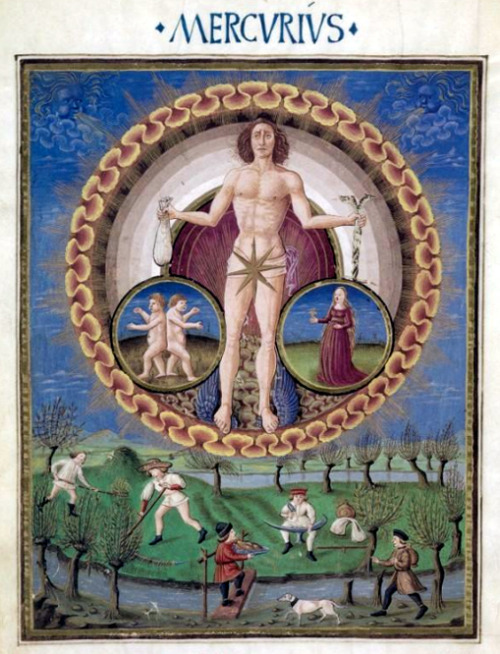
Mercurius from Codex de Sphaera c. 1469-CE
Budha overly conditioned by Shani tends to express the letter of the law . The spirit of the law may be less relevant to this codified thinker.
Budha residing in a rashi of Shani * Budha-Makara-Draco - Budha-Kumbha * may display the attribute of narrow-mindedness which expresses as restrictively conventionalized, lawful, rigidly systematic thinking marked by intolerance for alternative interpretations. The Learner may be able to accept only one approved procedure, method, or result while indeed many viable options exist.
The restrictive mentality is further tightened if Budha receives drishti of Shani. If Induja also receives drishti from Shani-Vṛścika, shani-Karkata, or Shani Mesha, Budha-Makara-Draco can express only a limited range of observations, instructions, explanations etc. Spoken expression may favor platitudes, social niceties, and other non-confrontational rank maintenance statements.
The nativity is often well-suited to hierarchical and bureaucratic functions, law-enforcement, or employment with government agencies in areas such as public education, military, or health care. Generally, the Learner
= not an innovator. If the Learner
= appreciated as an applied thinker for whom work tasks should repetitively provide an application of known rules, the Learner may enjoy full success.
If Professor bantering Budha also receives drishti from Shani-Dhanus, shani-Simha, or Shani Vrishabha, Budha-Kumbha can express only a limited range of observations, instructions, explanations etc.
The nativity is often well-suited to technological functions, bench science, computer systems maintenance or employment with government agencies in areas such as pre-university science education, technological training, military systems, or large-scale health systems work. Despite often working in scientific environments, the Learner
is not an innovator. If the Learner
= appreciated as a technician maintaining existing systems - and not expected to perform as a true scientist seeking new knowledge, then the Learner may enjoy full success.
Budha-Kumbha receiving the mentally restrictive or depressing drishti of Shani
-
Egypt-Sudan King 1920-1965 Faruq al-Awwal * Shani-10 parivartamsha Surya-3
Indo-European Cognates for "Budhan"
-
German biotan, bieten
-
Anglo Saxon beodan
-
English bid, buy
-
Greek = Ἑρμῆς Hermes
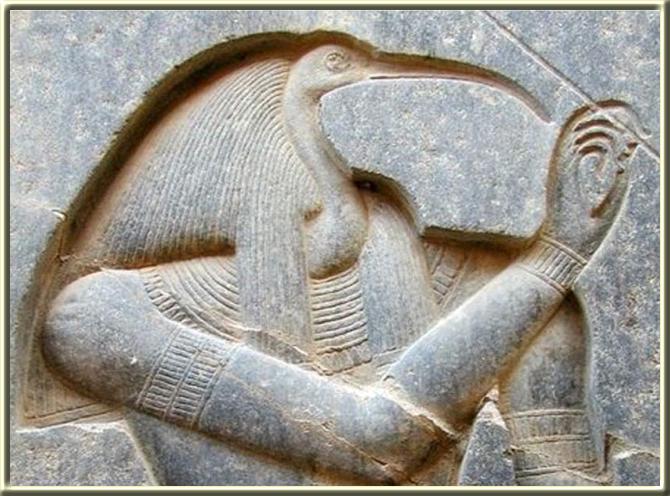
Hermes-Thoth, revered guide of Khemeti civilization
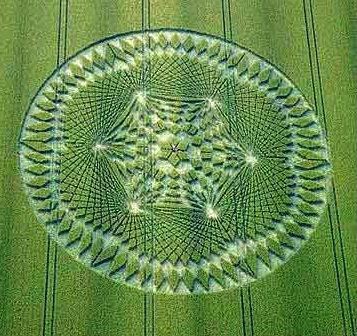
Here you all are, racing to try and get where you already are when all you have to do is relax into it, to allow it.
Take your head off, hmm? Take off your head and put it somewhere else.
Your logical mind, which is wonderful, indeed, is to be your servant.
You are not to be its slave."
~~ Light Source P'taah - www.ptaah.com
-
moudhya-dosha = Budha"burned" by the rays of Surya
-
Hands, hand-to-eye coordination
- mūlatrikoṇa
-
Short journeys, short-term projects
-
Parnaya * panna: Emerald gem for Budha
-
Scripts, writings, texts, dialogs, protocols, formalized communications
-
Telepathy
- Graha in 3rd-from-Budha
-
cleverness, discrimination
-
workgroups, teams, neighbors, sibling-cousin groups
-
Explanation, description, instruction, argument
-
Professions:
Sales, marketing, advertising, public relations -
Information vs. Wisdom vs. Truth
-
Speech
-
Planetary Neutrality
-
Genius
-
Shri Krishna Avatara (in some traditions)
-
Mentality
; -
Skills Training; Education
-
Internal and External Narrative, communication, conversation
-
mental process, conceptual thought
-
Drishti to Budha
-
Sexuality, interpersonal relationships
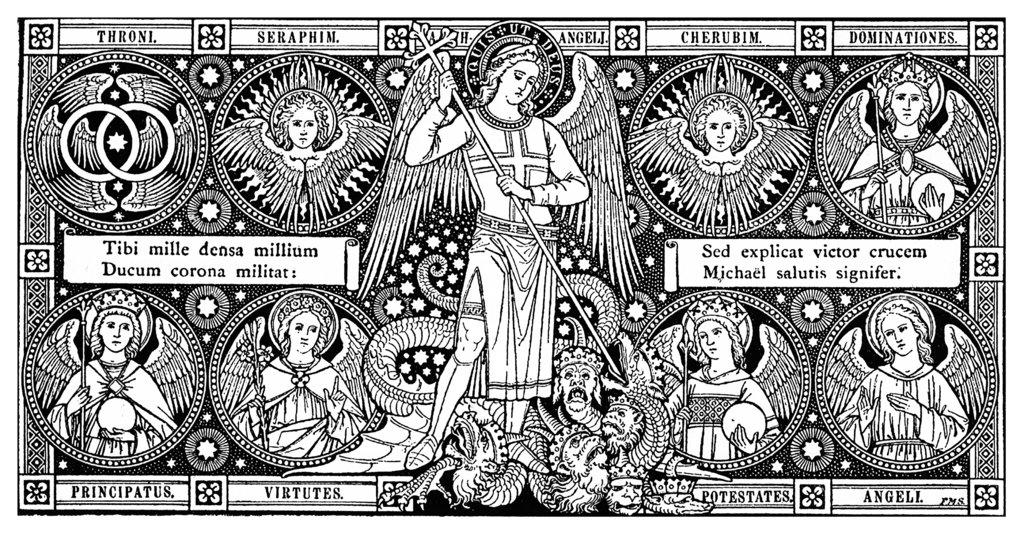
Line-art illustration from the 19th-cen Roman-Rite Campion Missal
Angel comes into the English lexicon from the ecclesiastical Greek angelis meaning messenger. (Most Christian cosmological and liturgical vocabulary originates from Greek.)
The medieval European concept of Nine Choirs of Angels was developed by the architectonic cosmologists Pseudo-Dionysius (a.k.a. Dionysius the Areopagite) ++ Summa Theologica 1225-1274 St. Thomas Aquinas
en.wikipedia.org/wiki/Christian_angelology
en.wikipedia.org/wiki/Achyranthes_aspera
-
Achyranthes = Apamarga-bhasma
-
Digestive herb
-
Ayurveda: it is bitter, pungent, heating, laxative, stomachic, carminative and useful in treatment of vomiting, bronchitis, heart disease, piles, itching abdominal pains, ascites, dyspepsia, dysentery, blood diseases etc.
Ayurvedic Preparation
-
Apamarga Taila, agnimukha etc.
Chemical Constituent
-
Plant yields achyranthine

Achryanthus Aspera = Apamarga = sacred to Budha

Achryanthus Aspera = Apamarga = sacred to Budha
North
= uttara = udIcImovements in the northerly direction are forecast during many periods of Budha
dressed in yellow robes,
with four arms, carrying a sword, ashield, amace and Vara, mounted on a lion."
~~ BPHS, sarga-84, shloka-9
Saravali Sarga-7-13 " Mercury rules
- Veda, writing, sculpture,
- medicines,
- expertise, minister-ship,
- speech, jokes,
- birds,
- couples,
- fame,
- Vanas-pati ( a large forest tree which bears fruit apparently without any blossoms)
- and gold."
BPHS Shloka-6 2-65 Sarga-58 Effects of the Antara Dashas in the Dasha of Budha
Budha gives most unobstructed, natural results
-
in exaltation,
-
in a friendly Rashi,
QUOTATION Das / Behari
" An afflicted Mercury indicates an increase in low class association and opponents,
loss of wealth , fear of being confined, mean speech and an unsteady mind."
" The 6th from Budha be also considered in regard to indications derivable from Ari Bhava ." QUOTATION bPHS Sarga-7, shloka-39-43
" .. Mercury = malefic if He joins a malefic ..." BPHS Sarga-3, shloka-11
Mercury Meanings, symbolical and Physical
Thinking, examination, analysis, discrimination, logical argument,
publications, printing, media-production, messengers + messaging, angels + evangelism,
mail, email, postings and announcements, reports, advertising,
scheduling, planning, problem-solving, definition, articulation,
explanation, instruction, recipes and formulae, lists and agenda,
writing, painting, hand-craft, manual skills, meetings, cooperation, collaboration, teamwork,
conversation, meddling, gossiping, talk, chat, nose, hands, arms, fingers, signatures and signs
QUOTATION from B. V. Raman
Three Hundred Important Combinations . (10th ed., delhi, 1991). Originally published in 1947.
Peenasa-roga Yoga, #278:
"Mercury is the planet associated with the nose
and therefore any afflictions to him may find expression in the shape
of the person suffering from nasal complaints ."

Macaque from Sundarban National Park in Bangladesha
Sumerian =Neba (Niburu) the tutelary deity of Borsippa = Budha
budhadina = day of Budha, wednesday
matronymic * metronymic = name derived from the name of one's mother or a maternal ancestor
- Budha's mother = Rohiṇī - Aldebaran = the giant-orange star Aldebaran
patronymic = name derived from the name of one's father or a paternal ancestor:
- bantering Budha's father = Chandra = Somana = the Earthen Moon
aindava - patronymic: like the Moon; also a name of Nakshatra Mrigasiras
baudha, boudhana, Budha - awakening, intelligent, clever, naame of a descendant of Soma
candraja - moon-born, born from Chandra
candra-vaMza - the lunar race of kings (This is the second great line of royal dynasties. The progenitor of the Chandravamaza was Soma the Mens-Moon. Chandra = child of the Rishi Atri and Chandra = father of Budha. 'vamza' = bamboo = line or pedigree, similar to the joints in bamboo )
eka-deha - having one body * from one same family * having a singular form
eka-aGga - a single part, asingle member * having a singular unique or beautiful shape * also a name of Mangala * also a name of Vishnu
hima-kara, himarazmi - causing or producing cold * name of Chandra, applied also to Son of Chandra
Hemna, Heman - Greek Hermes
induja, indunandana, induputra, indusUnu, indusuta - son of the Earthen-Moon
Kumara * teenager
mRgAGka * deer-marked * patronymic
mRga-laJchana - Chandra's son * patronymic
na-kSatra-pati - ruler of nakshatra, lord of the sectors of the Moon
nAtha-putra - the protected Son, son who has a patron(natha = protector)
paJc-Arcis - having five rays
parnaya - to be green
prahar-SaNa, prahar-Sula * causing erection of the hair of the body, enrapturing, causing delight - desire with pulsing time-beats * name of Chandra, applied also to Son of Chandra -- also, tuGga - stamen (of a blossom), stamina, standing erect
(praharita = beautiful green color, the color of Budha Prahar * Para)
Rauhineya - a calf (Rohiṇī) * an emerald * also a name of Balarama * matronymic Budha's mother is Rohiṇī - Aldebaran = Aldebaran
Rohiṇībhava, Rohiṇīsuta - son of Rohiṇī
saumya, soumya, somaja, saumayana, somasuta, somaputra - son of Soma * patronymic
vid - knowing, knowledgable
(zaza = rabbit, hare. Chandra = hare-marked.)
zazAGka - hare-marked (marked with signs of the Moon, from the race of the Moon)
(zizi * zazi = names for Chandra)
zazi-ja, zazita-naya - moon's son, born (naya) of the Moon * patronymic
(zita = white; zeeta * zIta = cold)
zItagu, zItarazmi, zizirAMzu - having cool rays (razmi = ray of light, beam, cord; amzu = ray, filament)
zraviSThA-bhU, zraviSThA-ja - son of Sravishtha (Zravistha-Zravana = zone of Chandra) * patronymic
QUOTATION from www.etymologyonline.com = lemma = Mercury
from L. Mercurius "Mercury," c.1150, from L. Mercurius the Roman god, originally a god of tradesmen and thieves, from merx " merchandise" or perhaps from Etruscan infl. by merx. Later he was associated with Greek Hermes .
The planet closest to the sun so called in classical Latin (c.1386 in Eng.). Sense of "silver-white metal, quicksilver" is first recorded c.1386, when elements were commonly associated alchemically with the planets. This one probably so associated for its mobility."
Koeln Digital Sanskrit Lexicon
- www.sanskrit-lexicon.uni-koeln.de
budh
- To wake, wake up, be awake; to recover consciousness (after a swoon)
- To observe, heed, attend to
- To perceive, notice, learn, understand, become or be aware of or Acquainted with
- To think of, present a person
- To know to be, recognize as
- To deem, consider or regard as
- To be Awakened or restored to consciousness
- To wake up, arouse, restore to life or consciousness
- to revive the scent (of a perfume)
- To cause (a flower) to expand
- To cause to observe or attend, admonish, advise
- To make a person acquainted with, remind or inform of. impart or communicate anything to
- To wish to observe, desire to become acquainted with
- To have an insight into, understand thoroughly
Budha:
- Awaking
- intelligent, clever, wise
- A wise or learned man, sage
- A god
- A descendant of Soma, hence also called saumya, saumAyana
- Author of RVand father of Puru-ravas
- identified with the planet Mercury Mercury (regarded as a son of Soma or the moon)
- Wednesday
Accuracy, analytical adjustment, not originality, averse to love/devotion, communications, editing, comprehension, research, computer knowledge, convertible nature, sexless, diplomacy, discrimination, elegance, eloquence, fun, liberal, general success, green things, romantic idealism, averse to wisdom, intellectual knowledge, wit, intuition, memory, logic journalists, mathematics, medicine, astrology, medium of truth, sciences, messengers, evangelist, angel, enseigneur, missionary, envoy, apostle, public speakers, polarization = its central quality, publishers, scholars, short distance, day to day travel, skin-touch, virility, speech, writing, study, books, education, Vishnu (god).
communications media production, films, books, magazines, computers and software, audio-video, programming, calendars, schedules, administration, writing, reports and announcements, narrative, script, hand-craft, tools, artisan skills, event planning, publication of text, gesture, speech and song, every variety of commerce, youth-oriented, embrace, sexual mating, mental activity, prescriptive medicine (vs. diagnostic medicine = Guru), drugs and potions, brief or local ravel (vs. Guru for world travel) conversations, image-manipulation; nose, ears, hands, arms; advertising, sales and marketing; argument; fraud, greenish things
division of the course of Budha into seven stages, seven portions, seven stations
QUOTATION from B.V. Raman, Three Hundred Important Combinations . (10th ed., delhi, 1991, 1947).
"Malefics, sukha-graha, and Neutrals " p. 6
" Budha is
Benefic as ruler of
Neutral as ruler ofHe is malefic as ruler of
- 3 and 12 for Cancer
- 4 and 7 for Pisces
- 7 and 10 Sagittarius
- 8 and 11 Scorpio
- 2 and 11 Leo
- 3 and 6 Aries"ashtangata
When combust * ashtangata, Budha becomes subjectivized .
-
The mentality develops a solipsistic character.
-
the Learner
's mentality is unable to objectify information.
-
The Learner tends to personalize the information-interpretation process.
moudhya-dosha Budha has difficulty to see the world from another person's perspective, which can hamper effective problem-solving and reduce articulated expressions of compassion.
Traditional rules for combustion of Budha:
-
Budha occupies a position within 13 degrees of Surya
-
if Budha is retrograde : within 11 degrees of Surya
Budha = the natural regulator of Sahaja bhav bhava-3 (announcements, reports) and bhava-6 (logical argumentation, problem-solving). Budha is the lord a small island of rational thought within the great ocean of"Mind" [Chandra]. It is the Island of Rational Thought.
-
Most of Budha's thinking is pragmatic (He = friend of Shani ) and most of the outcome of Budha's activities is directed to the material plane.
Mercury determines the Learner
's ability to profit from measuring and managing the matters of Budha's immediate environment.
Budha is capable of conceptual thought.
-
His calculations are not limited to perceptions of the five physical senses.
Yet even when Budha is operating in the world of abstract philosophy, He is busy measuring cycles, setting rhythms, and"making meter" .
-
Budha measures objects and the relationships between objects in the field of psycho-mental perception.
How the Thoughts Got There
The Secret Life of Thoughts
QUOTATION from Generous Wisdom : Commentaries by His Holiness the Dalai Lama XIV on the Jatakamala Garland of Birth Stories.
(1992). Tenzin Dorjee (Trans.) Dudjom Rinpoche (Ed.).
Q: Many Buddhist and non-Buddhist teachers have taught us in their traditions not to do negative actions but to do positive actions, and that doing one or the other is the consequence of our thinking.
How does Buddha's teaching distinguish itself from the teaching of others? Buddha's teaching lays emphasis upon doing positive rather than negative actions through subduing one's mind completely. A:
To be able to understand what mind is and how our environment and its inhabitants, as well as the pleasurable and painful feelings of these sentient beings, relate to our mind, we have to think vigorously about this.
Dependent arising is the Buddhist view, that all phenomena which are beneficial or harmful to us, including pleasurable or painful feelings, Arise merely depending upon their respective causes and conditions.
To explain this further: it is said that all phenomena in cyclic existence which cause pleasure or pain are not the premeditated creations of a God they are the creations of Their own mere causes and conditions.
In the Sutra of Dependent Arising, buddha said
-
Because this exists, this also exists.
-
Because this has arisen, this also has arisen.
-
Because causes and conditions exist, from them arise different types of pleasure and pain. And because causes and conditions exist, they too must have been produced by their causes and conditions, as permanent (unchanging) causes cannot produce pleasure or pain. This speaks about how things are produced, from impermanent conditions.
-
Even the causes of pleasure and pain must have been produced by their own conducive conditions, not others.
For instance, karmic action is produced by ignorance as its condition. According to dependent arising, buddhism tells us, things have not been produced by an external agent such as a creator God rather, happiness or suffering arise from whether or not our mind has been subdued.
-
... When we subdue our mind, positive actions increase, and negative actions diminish , due to which we are able to have the happiness we are seeking and to decrease unwanted problems.
Putting aside consideration of future rebirth, which may be far off, people who have subdued their minds and are calm are happier than others in this life.
Such people can taste food better, sleep better and have more friends , or at least find people less disturbing to them."
Split-ness
A fundamental premise of Budha's weltanschauung = the world, and one's true self, is naturally split in half .
-
Reality consists of infinite numbers of opposite pairs and partners, connected by that permanent copula which is the Self.
-
(In English grammar, the copula = ; " to be" .)
Budha = coupler.
Budha and Emotional or Physical Insecurity
Budha = natural enemy of Chandra.
Budha =lord of
-
3rd-from-Karkata (writing about home and homeland)
-
12th-from-Karkata (dissolution of security, threat of invasion).
Budha and Cultural Pluralism
Some commentators opine that the USA = premier land of Mithuna , because every citizen has a split identity : inside the USA, one can never be simply what the outside world considers as 'American'. Rather, patriotic self-definition in the USA has, since 1776, required a split self. One must acknowledge one's still-valid past identity even as one confirms a full embrace of the new: thus, irish-American, polish-American, african-American, naative American, etc.
Many attempts to eradicate this "two-ness " in USA society have failed.
For example,
-
To destroy their tribal identity, naative American children were forcibly taken from their parents to be raised in government boarding schools (run by Christian missionaries). However, at the end of their ordeal, the children almost universally returned to their parents, their land, their tribal religions, and their customs.
-
In the years leading toward WW-2, POTUS-32 Fireside Chats 1882-1945 Franklin D. Roosevelt and POTUS-30 Price of Freedom 1872-1933 Calvin Coolidge both ran aggressive campaigns against hyphenated identity. These campaigns promoted the assertion that any form of split identity amongst Americans was dangerous to national security.
-
Naturally, both men have Chandra in Mithuna
[FDR = Arudra, JCC = Mriga]
-
Mithuna tends to find that language is more influential than ethnicity. The campaign failed largely because non-Mithuna people realize that humans will defend the way-of-life, and the land one lives upon. There is much less allegiance toward the land in which a particular language is spoken, or wherein one was born.
-
As the USA continues to accept immigrants from an ever-increasing diversity of ethnic and religious backgrounds, the two-ness of American identity both deepens and persists. New identities such as Muslim-American and "-American are re-stimulating the historic debate (Budha debate) about patriotic loyalty. The answer to the old doubt about bifurcated identity However, remains the same: two-ness = form of strength in any narrative. But repression of duality and dogmatic insistence on artificial unity = weakness in any debate .
It turns out that FDR and Silent Cal had relatively little to be worried about. Budha's split-mindedness encourages His karaka activities of commerce, administration, siblings-teamwork, manual skills, publications and media production.
-
Budha created first an industrial economy based on machine [Budha] technology, followed by the current information [Budha] economy based on electronic counting [Budha] machines (computers).
-
The development process of financial, social, biological, conceptual economies [Shani] constantly engages the mental dance [Budha] of compare and contrast, polarity and unification, opposition and union, coupling and uncoupling, on and off, up and down, in and out... All Budha-mind, all the time!
-
Other nations (notably India) are in the process of establishing or re-establishing a conscious culture of pluralism = Buddhistic conscious-plurality of permanent bifurcation of identity. In a pluralistic national culture, national "passport" identity can be flexibly paired with a community identity (race, caste, religion) . The economy of those nations can be expected to prosper due to increased communication [Budha] between its citizens which facilitates commerce.
-
The more people are allowed to possess complex pluralized identities, the more economic diversification and development is encouraged, and The financial wealth ier people may become through their own mental-manual efforts (bhava-3, self-made treasury , mentality, hands).
Conversely, the more rigid the limitations [Shani] on which characteristics can be coupled [Budha] in the national and personal identity (such as in theocratic or mono-ethnic states, where only one ideology, class, or religion = allowed ), the faster the economy dies.
Budha controls that great port, the mind's freight-container thought-switching-yard, which is the active repository of all the accumulated conversations of this and previous lives
Human "mind" in Jyotishavidya encompasses a vast realm, consisting of Chandra's huge ocean of astral emotion that surrounds the relatively small island of Budha's explicitly verbalized thought.
In Budha's small but hyperactive terrain,"minding"as a performative verb gives a function of"A budh" or"attending to" .
Chandra = the greater"mind" whereas Budha, saumya son of Soma, = subset of mind that is defined by the mirroring function of"remind"
Budha = the mentalized repetition of apprehended experience = the specialized naming, articulating, explaining and organizing functions of"mind" .
Budha's bhava-3 is Typically, abusy, chatty, administrating, interactive domain concerned with this repetitive, rationalizing subset mental process.
Soma and Budha = Father and Son
In Jyotisha lore, Budha is the son of Soma called Soumyasa .
-
The myth says that father and son have a rather contentious relationship.
-
Soma and Budha have the classic"senex" relationship exemplified in the Greek tragedies Odyssey and Oedipus Rex , and Shakespeare's: the young buck tries to usurp the power of an elder, thinking that youthful speed and clever innovation will surely win over age and outmoded habit.
-
Chandra is the Old One: mature, settled, does not rush to conclusions, knowing, Budha the kumara (teenager) is considered immature, adolescent, unsettled, making fast decisions often based on insufficient evidence, too quick to retort.
-
Historically, the rational, naaming, objectifying part of the mind = later addition to the human being. Thus Budha is much 'younger' and less well adapted to the psycho-emotional totality of human experience than the much elder part of the brain-mind which is Soma.
-
Budha is not really the karaka for Intelligence.
-
Divine intelligence emanates from Surya, the Sun (Vishnu).
-
truest human intelligence, in the form of Wisdom, is the province of Guru.
Discriminating: Information vs. Wisdom vs. Truth
Budha describes mental thinking
-
Budha, natural regulator of bhava-3 for team communications, and bhava-6 for arguments and disagreements, is the darling of the Information Economy. (Budha = major karaka for commercial business.
-
Budha represents a somewhat superficial layer of the personality that facilitates human-to-human communication.
Guru describes wise knowing
-
Guru, natural regulator of bhava-9 for the house of worship, and bhava-12 for the meditation cave, is the inner priest and the inner professor.
-
Guru represents the religious (9) and psychic (12) knowledge passed from generation to generation through the priestly lineages.
Surya describes The brilliant light of truth
-
Surya, natural regulator of bhava-5, is the karaka for Genius. Surya is the Light of Truth at the center of all religions.
-
Surya represents the human soul's connection to the Divine.
Budha's machinery is strictly neutral toward the information it is processing.
-
Budha carries no inherent values and continues no pre-incarnationally planned legacy. Budha carries out the agenda of His lord.
-
In the hierarchy of graha, Budha is similar to the "Prime Minister" who provides essential information and guidance to the King. However, it is (or should be) the King who makes the ultimate ethical decision.
In svakshetra
In Mithuna rashi and Kanya rashi, Budha is almost perfectly neutral toward the information He is processing (barring the effect of drishti).
-
Budha processes information as it is found, with no agenda except"data in, data out" .
-
Incoming sense data, largely determined by the bhava Budha occupies, is interpreted, logically organized, and messaged out.
Budha = karaka of neutral, skillful communication
-
6th-from any lagn aindicates animosity, exploitation, or disease in matters of that house. The house which is 6th-from-Budha will indicate any imbalance of neutrality or loss of agreement in communications.
-
one's behavior in regard to matters of this amsha = less concerned with the interests of others, inimical to balanced agreements, independent exhibit behaviors areas, which are all the effects of imbalance (Ari = 12th-from-7th, loss of balance) in the body, mind, spirit, and pocketbook :)
Budha = Friendly with Surya and Shukra
Since neither Shukra nor Budha can occupy more than one rashi distant from Surya, certain potential parivartamsha yoga cannot occur
Not possible
-
Budha-Urisha exchange Shukra Kanya
-
Budha-Simha exchange Surya-Mithuna
Possible
-
Budha-Simha exchange Surya-Kanya
-
Budha-Tula exchange Shukra Kanya
-
Budha-Urisha exchange Shukra Mithuna
Babbling Budha always apprehends as friends, both the King [Surya] and the Minister of Sense Pleasure [Shukra]. Surya = neutral toward Budha, while Shukra accepts Budha as a friend.
Thus Budha the Communicator feels welcomed in Shukra-ruled rashi of Vrishabha and Tula, wherein Budha offers the conversational skills to facilitate balanced agreements.
Budha experiences a somewhat mechanical, neutral role in Surya-ruled rashi of Simha, wherein Professor Budha serves as an expressive mouthpiece or mimic for Surya's brilliant ideas.
Parivartamsha yoga between Surya-Kanya and Budha-Simha gives a highly confident, elitist, but ethical communication style. The native = fact-based decision-maker.
-
Global humanitarian POTUS-39 Talking Peace 1924-2024 Jimmy Carter [[Budha-Simha] = [Budha in bhava-11] + [Magha-Shukra-yuti-Budha-Aryaman] + + [Aryaman-Budha-11 parivartamsha Surya-12-Hasta]
-
Basic Instinct 1944- drama-commerce Michael Douglas + [Yoni-Budha-yuti-Guru-Yoni] + + [Surya-2 parivartamsha Budha-1] = decades-long career in both dramatic acting [Surya] and commercial cinema production [Budha producer].
Parivartamsha yoga between Shukra-Mithuna ++ Budha-Urisha = produces a mentalized sensualist with a pleasant communication style.
This beneficial exchange flourishes in those businesses which are highly civilized and populated by women. the Learner's thinking is oriented toward facilitating the pleasures of self and others .
Gracious entertaining and all of the narrative arts are enhanced. The Learner may happily enjoy literature and literary publishing, physical and dramatic arts, delicious oils and wines fashion, jewelry and textiles, diplomacy and human relationships and acquisition of valuable knowledge .
Budha-Urisha parivartamsha Shukra Mithuna
-
POTUS-41 All the Best 1924-2018 G.H.W. Bush [Budha-3 kahala-parivartamsha Shukra-4] Budha-3 (business, messaging) + Shukra-4 (underground wealth, oil)
-
POTUS-33 Trial and Hope 1884-1972 Harry Truman * Budha Vrishabha-11 + Shukra Mithuna-12
-
The Mirror 1895-1986 theosophy Jiddu Krishnamurti [Vrishabha Budha-8 parivartamsha Mithuna Shukra-9]
-
Sophie's Choice 1949- drama Meryl Streep [ensemble-managing Rohiṇī-3] + [Rohiṇī-Budha-yuti-Mangala-Rohiṇī] + + [Shukra-1- parivartamsha Budha-12]
Parivartamsha yoga between Shukra-Kanya and Budha-Tula
A much more problematic arrangement of mutual-exchange * parivartamsha occurs when Budha occupies Thula while Shukra occupies [nīcha] Kanya.
The two graha are mutual friends, yet Shukra is ill-disposed. The nativity enjoys social harmony [Shukra] and commercial acumen [Budha] in non-romantic business relationships. Relatively smooth dealings with little polarizing catalysis from men (except men who mirror one's own addiction issues via
= [nīcha] Shukra).
Yet, there is usually a history of polarizing catalysis via women. Budha exchanged with [nīcha] Shukra provides the clever narratives which describe infidelity to the vow and betrayal of the person.
[akashic memory patterning] of perfectionistic [Kanya] expectations , issues surrounding the servitude of the female (often marriage = service contract) over-compensating women due to the [nīcha] Shukra.
-
UK-King 1948- environmentalist Charles-3 = [Budha-Tula] = [Budha in bhava-4] + [Svati-Budha-yuti-Surya-Viśākha -nīcha] + [Svati-Budha-yuti-Ketu-Svati] + + [Budha-4 parivartamsha Shukra-3-nīcha]
-
General Electric 1935-2020-CEO Jack Welch = [Budha-Tula] = [Budha in bhava-6] + + [nīcha-Kanya-Shukra-5 parivartamsha Budha-Tula-6]
-
brilliant but tragic philosopher of social history, Michel Foucault - Budha Thula+ Shukra Kanya
Budha = Neutral in rashi of Shani
Budha feels neither welcome nor unwelcome in Makara, and Kumbha.
Hostility from Guru and Mangala
In Mesha, Vṛścika, Meena and Dhanus, mentalistic Kumara is not welcome. Although Budha = neutral toward His hosts when Budha occupies a rashi of Kuja or Guru, those hosts are hostile to Budha as a tenant.
Wisdom-lord Vrihaspati dislikes Induja's superficial, day-to-day perspective which cannot accommodate Guru's "big picture" cosmic understanding. Kuja dislikes Budha's habit of talking when Kuja would prefer to fight.
Professor Budha loses some of His objectivity when He resides in the signs of those who dislike Him.
- Budha tends to talk too big (or too vague) when in a rashi of Guru.
- Budha tends to speak too aggressively (or too selfishly) when in a rashi of Mangala.
Who is welcome in Budha's rashi = Mithuna and Kanya?
Professor Budha is able to offer a neutral home to all graha except Chandra, toward whom Budha feels an overt dislike.
Kanya creates a hostile environment for Professor Chandra. Kanya is the mūlatrikoṇa rashi for Induja who is highly mentalized and distinctively un-emotional. Chandra in Kanya may feel unwelcome in their work environment; indeed the Learner may develop an emotional servitude complex.
[Chandra-Kanya] * comforted by remedial aid * sensitive to logical argument * needs to help
works hard to earn the welcome but Soma-Kanya = self-critical and they feel [Chandra] that they have never done well enough. Usually they work extra hours and also usually these natives will go to their graves feeling dissatisfied.
-
POTUS-41 All the Best 1924-2018 George H.W. Bush
-
Cuba-Dictator 1926-2016 Fidel Castro
-
POTUS-43 Decision Points 1946- George W. Bush
Kuja
Although accepted as a neutral into Mithuna rashi and Kanya rashi, professor Mangala is very uncomfortable in those analytical, argumentative, verbally dominated places. Kuja is looking for a way to fight and compete.
-
In Budha's signs, Kuja is forced to fight with words (criticism, sarcasm) which does not give Mangala the dominating, physical power He wants.
Guru
Although accepted as a neutral into Mithuna rashi and Kanya rashi, Vrihaspati is very uncomfortable in those analytical, argumentative, verbally dominated places. Guru is looking for a way to expand wisdom and understanding.
-
In Budha's signs, Guru gets forced to argue His faith teachings, which does not give Guru the scope of trust nor the breadth of perspective He wants.
Mentality kumara 'the teenager' = karaka for one's personal mentality. Kumara is quick, incomplete, reactive not reflective, and"smart" . He reveals the internal and external mental processing and messaging style.
Thus, professor Budha's role in the Jyotishavidya nativity shows one's power to organize and develop the day-to-day information which humans need to interpret their world.
-
Budha regulates that adult mental-skill toolkit of heuristic devices - aphorisms, mnemonics, rules of thumb, models - which speed thinking and promote accuracy.
In the files, there = young man with severe autism and university tests also qualify him as mentally retarded. He has grown to adulthood. He is handsome and respectful to his parents and caregivers. He only speaks about 10 words, and it has taken him nearly 20 years to acquire those ten. He does not think self-defensively, and he needs to be closely supervised every moment of every day to prevent self-harm.
Yet, here's what's interesting: his parents and grandparents are financially privileged and educated. This boy has enjoyed the top quality of special education services, impeccable care -- never abusive -- and his grandparent left a substantial financial trust to ensure that he will have the best 24-hr care available, in perpetuity.
There are several other kids in his family, but this boy receives 90% of the attention and resource because it is perceived by this family that he needs it. He can be violent and he is athletically strong and his movements are unpredictable. (For example: crashing through a patio glass door at full speed.) He has a powerful [uchcha-Budha] in 5. He uses only 10 words but he gets everything he wants. People train their tightest attention upon him, waiting for him to send a signal about his plans and intent.
He was the subject of a prestigious, well-funded university research study on severe autism for close to a decade. The researchers adored him and fawned over his every little grunt and stomp. (One of the scientific researchers = Jyotisha client.) As an adult who = generally mute, or sometimes grunting, he has begun producing fine-arts paintings that are made from sudden splashes of bright color. These paintings have caught the attention of art merchants (Budha merchants) and his paintings usually fetch a high price! Is he a greatly effective communicator? Oh yeah. He expresses himself VERY clearly. It is remarkably revealing to see his Jyotishavidya nativity
. This young man = quite affluent financially (uttama dhanapati-2 Budha in 5 = his large trust fund); quite lucky in his living circumstances; always center-stage (5); and a superbly effective communicator within the parameters of his (tightly controlled) environment.
If conditions are ideal -- exempli gratia, ," uttama Vargottamsha Budha in kendra not combust in same rashi with Surya -- the Learner may be spectacularly intellectualized.
Nevertheless, if Surya and Guru lack strength, even a great analyst may not be Wise.
graha drishti from papagraha may reduce messaging capabilities.
drishti from benefics can expand and enhance communication skills.
Shani Drishti
Drishti from Shani restrains the articulatory capacity.
If Shani owns and aspects bantering Budha's rashi , the Learner may struggle to message effectively.
When Shani has inordinate impact on Budha, the native tends toward unclear speech.
The mechanics of Shani-influenced Budha include a tendency to reduce meaningful sounds and truncate words, lopping off final syllables, reducing essential vowels, and dropping final consonants even if the language being spoken requires these items for clear meaning.
Handwriting may become illegible.
One's resistance toward full articulation of the signal-marks (letters, diacritics, connectors, separators, punctuation, etc.) in the script makes the output too minimized and the marks become difficult to distinguish.
Writing becomes a slow and laborious process. Grasp of writing implements may be impeded by some manual handicap.
His Holiness the Dalai Lama
-
How to See Yourself As You Really Are
- translated - edited by Jeffrey Hopkins, ph.D.
The theory of dependent-arising can be applied everywhere. One benefit of applying this theory = viewing a situation this way gives you a more holistic picture, since whatever the situation is --good or bad -- it depends on causes and conditions.
An event is not under its own power but depends on many present causes and conditions as well as many past causes and conditions.
Otherwise, it could not come into being.
-
When you think from this viewpoint, you can see much more of the whole picture, and from this wider perspective, you can see the reality of the situation, its interdependence.
-
With the help of this relational outlook, the action that you take will be realistic .
...Failure to look at the whole picture means realism is lost.
-
The attitude that money alone is sufficient leads to unforeseen consequences.
-
Money is certainly necessary; for instance, if you thought that religious retreat in meditation alone was sufficient, you would not have anything to eat.
Many factors have to be considered.
With awareness of the fuller picture, your outlook becomes reasonable, and your actions become practical, and in this way favorable results can be achieved.
Budha's mūlatrikoṇa range = entirely within the Nakshatra of Hasta = 16-20 degrees of Kanya -Parthya.
-
Within the range 16-20 degree of Kanya, Budha's potential for clear articulation of ideas, incisive reasoning, and freedom from articulatory limitation or distraction, is optimized.
-
However, should Shani occupy Karkata, Kanya, dhanau, or Meena rashi, shani's graha drishti upon Budha = the mental process becomes more conservative, carrying a burden of oppression from the past, abit more fearful; and the mental clarity of Mulatrikona Budha will be reduced.
BUDHA = neutral toward everything except STUDIEs
The Latin verb studere = to be eager
Although this eagerness is often lost in the Chandra-school of education for purpose of personal security (as Trungpa says, "to defend ourselves") indeed the English word 'students' means "the eager ones."
Bantering Budha is often called // the calculator// because He rules the repetitive mental actions .
-
Budha measures, rates, and paces .
-
Budha makes maps, routes, programs and plans.
Whichever domain Budha occupies, the Learner is busy calculating matters of that environment.
If Budha is well disposed, the Learner may also articulate and explain what has been measured and project future plans based on continuous cycling of the established repeating mental pattern.
// Intelligence // reconsidered
Guru is the first karaka for language. Yet naturally, as the // measurer 'maata' Shri Budha is also a karaka for grammar, mathematics, and music .
-
All mental pattern-recognition and repetitive mental behaviors fall into Budha's portfolio, whether these mental processes are articulated through expressive language or not.
Thus Budha = karaka for intelligence . But it is important to note that Budha's intelligence is more of the calculating and conversing variety of information exchange between humans.
Genuine intelligence which is the capacity to channel divine truth, = property of Surya.
-
Similarly, wisdom is not included in Budha's portfolio. Wisdom = Guru.
-
Nor is "ethics ". The customary rules of a settled people, including their material rewards and punishments = Shani.
-
Nor is adherence to the terms of a contract (including marriage contract). Contractual agreements = Shukra.
-
Nor is rooted sheltering and caring. Parenting and protective behaviors = Chandra.
-
Budha is essentially a piece of mental machinery which compulsively weighs, measures, and rates. Budha delivers no judgment on meaning or significance except as limited to agreed standards of qualitative or quantitative measurement.
Budha is an absorptive, passive"neutral" graha whose mechanical actions must be chained to a greater force in order to accomplish a spiritual goal. Budha's lord has a great deal of power over the outcome of Budha's behavior.
+ [uchcha-Budha], caveat emptor
uchcha Budha becomes a"systems " thinker, capable of consciously integrating simultaneous calculations regarding multiple and diverse cycles.
-
When Budha is uttama or svakshetra and thus lord of His own territory, His intelligence is unimpeded by a potentially restrictive lord but also ultimately unconstrained by moral or aesthetic concerns.
-
Lacking direction from a supervising graha, Budha will blithely categorize, organize, articulate and plan using information available in the domain and rashi where He is placed.
-
Sometimes the smartest people make the biggest moral errors, especially in this materialistic age when Budha's mechanical information processing abilities are so highly prized.
Quality of the speaking voice essential to the educator's profession, is determined by conditions of the 2nd-house from lagna however, 2nd-from-Mercury is also influential.
-
Guru is also a karaka for speech and particularly for language ability .
-
Top caliber speakers may have favorable Guru and favorable Budha, related in auspicious angles.
Meena 's Professor Guru only has only one
enemy-- and that is Budha!
Fallen Budha-Meena
-
Guru's universal, mystical sign Meena = tough place for locally-focused, technically-minded Budha to function. The result = Budha/Meena tends toward inarticulate, incorrect,and distracted mentality with poor problem-solving skills.
-
Budha/Meena with good aspects might be a remarkable musician or artist, acompassionate servant of humanity, or galaxy-piercing meditator who perceives huge universal truths. the Learner tends to struggle with practical, technical mental tasks and verbal articulation of broad perceptions.
-
the Learner is sensitive to the presence of intuitive pathways through the astral world, which are perceived in meditation and the dream state.
-
Yet, expressing The perceptual experience of moving along those pathways (in the dream world of Pushan, the conductor) can pose a significant learning challenge and nigh impossible through the limited logical mentality of Budha. It's a task that Budha can't perform unless Budha receives nīcha-bhaṅga.
(Similar general difficulties attend most rashi conditions for Budha in bhava-12.)
Surya = the primary karaka for Genius.
Yet nīcha-bhaṅga Budha can produce highly analytical reasoning and accurate articulation of speech. nīcha-bhanga Budha occupies Meena while also in kendra from key points like lagna and/or Chandra.
-
The second prerequisite for nīcha-bhanga = Budha's dispositor Guru should be extremely strong. Ideally, positive drishti occurs. Then, emerges an amazing genius like Theory of Relativity 1879-1955 Physics Albert Einstein + [nīcha-bhanga] Budha-yuti-Surya + [uchcha] Shukra-yuti-Shani [10]
-
Despite genius for expressing the astral perceptions, these folks will continue to struggle with mundane problem-solving. Although gifted to navigate the astral plane of perception, the Learner = not equipped to navigate earth.
-
For example, aE could not complete his own physics computations, frequently got lost in his own neighborhood, and had famously poor relationship communications within his own family.
Although strength of bandesha-4 and yuvati-pati-7 is also required success in higher academics (such as university teaching and research careers) auspicious Mercury is also major indicator of ability to articulate complex thoughts. Most people who earn Ph.D.'s will be found to have the strong positions of Mercury signifying verbal and written articulation and robustly analytical intelligence.
-
Permission to practice all three customary / professions / teaching, law, medicine requires advanced graduate educatio. Practitioners of these professions usually have some planetary combination of Jupiter, mercury, and bandhesha + yuvati-pati + dutiful karmesha. These placements mark a leadership career as intellectually being distinguished.
However, it is the professors and consultants in those fields who are the most intellectually engaged with their subject matter. So, when we see a strong Mercury in yoga with favorable Guru and a distinguished kendra lord, we expect not only a professional position , but also a degree of intellectual leadership within that profession.
Certain rashi of Budha are allied with specific professions.
-
Budha in Dhanus - Haya [Mercury in Sagittarius] is quite helpful for practice of law, particularly at the teaching and policy levels. If other factors collude, Budha-Dhanus can be a professor of law or top government policy maker. (Can usually see both the forest and the trees.) Very strong placement when in bhava-7 (= law courts)
-
Budha in Yuvati bhava in most signs gives a natural capacity to articulate contracts and agreements. A natural negotiator. In Dhanus rashi, excellent for the solicitor's profession, eventually becoming a judge.
-
[Budha-Kanya] = [uchcha] + [svakshetra] + [mūlatrikoṇa if within 16-20 deg]= supremely articulate; the native bless with this placement will flourish in any field of logical inquiry and instruction. This position has a natural affinity for medicine, and may be found teaching, writing, diagnosing and prescribing in one of the medical traditions - whether tribal medicine, homeopathy, pharmaceutical, ayurveda, etc. Excellent in all rational-analytical professions.
Tends to be a decision-tree professional of some stripe. See the gazillionaire investors
-
Berkshire Hathaway 1930- mutual funds Warren Buffett champion-originator Hasta-1] + [uchcha-Hasta-Budha-yuti-Shukra-Chitra-nīcha-bhaṅga] (2)
-
Microsoft 1955- philanthropist Bill Gates [political-dramatic Chitra-1] + [uchcha-Budha-yuti-Mangala] in 7th-from-Chandra [[Soma-9. charity, patronage]
EXAMPLE
Superman 1952-2004 tetraplegia Christopher Reeve [challenging-competitive Hasta-1] = [navamsha nīcha- Budha-Meena ] + [ashta-Hasta-Budha-yuti-Surya-Aryaman] + [ashta-Hasta-Budha-yuti-Shani-Hasta]
-
CR earned millions in sales revenue by speaking and writing -- even while confined to a motorized wheelchair, by describing and explaining his tragic injury [Kanya]
svakshetra Budha-Mithuna is also highly articulate but His focus tends toward rapid, short-term communication and rather than Kanya-Budha's slower more comprehensive, longer-term logical inquiry. Mithuna-Budha thrives in any fast-paced business environment. Yet easily bored in stodgy academics.
E.g., Budha-Mithuna /7 enjoys commercial law.
For he that wavereth is like a wave of the sea, driven with the wind and tossed."
~~ James 1:16 (KJV)
Mental Peace through Reasoning , rather than Meditation
QUOTATION Tenzing Gyatso . (1997). A Policy of Kindness : An Anthology of Writings By and About the Dalai Lama
" Question:
You often speak about the need for mental peace. What do you mean by it? Does it denote a specific state of mind?
Dalai Lama:
Mental peace? If you reduce anger and attachment, you reach a point when your mind always remains calm or stable . It is as simple as that.
Energized anger and attachment create wavesin your mind. People may not realize when they yield to desire or develop attachment that it will cause them mental unrest.
But actually, when a strong desire or attachment occurs, during that moment mental peace is lost.
To reduce attachment, especially anger or hatred, leads to mental calmness. This is what we call mental peace.
Question:
Isn't it also necessary to practice meditation to obtain mental peace?
Dalai Lama:
My experience is that it is obtained mainly through reasoning. Meditation does not help much.
The main cure is to realize how harmful, how negative, anger is. Once you realize very clearly, very convincingly how negative it is, that realization itself has power to reduce anger.
-
You must see that it always brings unhappiness and trouble.
of course anger comes. Anger is like a friend or relative [whom] you cannot avoid and always have to associate with. When you get to know him you realize that he is difficult and that you have to be careful. Every time you meet that person -- still on friendly terms -- you take some precaution .
As a result the influence that he has over you grows less and less. In the same way you see the anger coming, but you realize " Ah, it always brings trouble, there is not much point to it."
-
The anger will lose its power or force.
-
So with time it gets weaker and weaker."

Budha's problem-solving skills
Subject: Potato Garden
An old man lived alone in Idaho. He wanted to spade his potato garden, but it was very hard work. His only son, bubba, who used to help him, was in prison. The old man wrote a letter to his son and mentioned his predicament.
Dear Bubba,
I am feeling pretty bad because it looks like I won't be able to plant my potato garden this year.
I'm just getting too old to be digging up a garden plot.
If you were here,
all my troubles would be over. I know you would dig the plot for me.
Love,
dad
A few days later he received a letter from his son.
Dear Dad,
" For HEAVEN'S SAKE,
dad,
don't dig up the garden! That's where I buried the GUNS!"
Love,
bubba
At 4 A.M. The next morning, adozen FBI agents and local police officers showed up and dug up the entire area without finding any guns. They apologized to the old man and left.
That same day the old man received another letter from his son.
Dear Dad,Go ahead and plant the potatoes now. It's the best I could do under the circumstances.
Love, bubba
Law of Logical Argument:
Anything is possible if you don't know what you are talking about.
QUOTATION from Tenzing Gyatso, dzong-ka-ba and Jeffrey Hopkins, Yoga Tantra: Paths to Magical Feats. Translated and edited by Jeffrey Hopkins.
" The first mental abiding, setting the mind, occurs when you initially withdraw the mind inside and place it on the object of observation, not letting it scatter to external objects.
This = result of the first power--hearing instructions on how to set the mind on an object of observation.
-
At that time, the mind, for the most part, cannot stay in place, and thoughts come one after another like a waterfall.
-
Due to this, you come to identify thoughts and even wonder whether conceptuality is increasing.
-
However, the seeming cascade of thoughts is due to not having previously identified the extent of your own thoughts, since you had not directed the mind inward, whereas now you notice them due to employing mindfulness.
With gradual cultivation, you develop the continuum of placement on the object."
Into any rashi and any bhava, blustering bantering bididing Budha can bring His portfolio behaviors:
-
talking, gesturing, reporting, writing,
-
painting, tool-using, crafting, technology-applying,
-
arguing, criticizing, explaining, instructing, training,
-
itinerary planning, short-term thinking, scheduling, schematics, near -goal travel.
Budha in any condition will use that condition for purposes of
-
selling, trading, administration, marketing, advertising,
-
holding meetings, going to conferences,
-
and participating in rapid-cycle communications within team-groups.
Budha the Businessman does commerce and conversation , and He must stay Busy.
QUOTATION Das / Behari commentary re: Budha
" It is difficult to find Mercury alone in the Zodiac.
Therefore, this planet cannot give good or bad results alone.
-
It is pliant and supple and ready to absorb the characteristics of the sign posited in and the planets aspecting or associated with it.
Mercury is known as being neutral, sexless and convertible."
[BPL note: 'sexless' = 'gender-less'. Dualistic Budha the Coupler = karaka for vibrant sexual communication and sexual narrative. Yet, ever-adaptable Budha can assume a variety of roles (masculine, feminine, mental, physical) within any sexual discourse.]
Q:I recall reading in a book that Mercury takes on the quality and nature of any planet it's conjunct with. Is that true?
A: Induja never loses His characteristic behavior as the calculating-computing communications signal-controller.
Venerable Lord Kumara is always in charge of signs, significations, assignments, enseignement, zeichen, signs and wonders, messages, meetings, schedules, calendars, writing, painting, hand-craft, tools, techniques, technologies, training, logic, arguments, plans, medicine, instructions, information, explanation, data, descriptions, details, examples, reports, announcements, and mental polarities.
As the controller of the mental traffic grid, Busy Budha's portfolio of skills and subject-areas is as large and important as any other classical graha.
However, like any other graha, Bantering Budha will express His characteristic behavior via the environment of the bhava and the rashi into which He was born, and that environment will include any co-tenant graha. Budha mentalizes and rationalizes the perceptions just as Shukra sensualizes the perceptions and Shani legalizes the perceptions.
But that does not mean that the Kumara is dominated by His co-graha. Rather, Budha is the only graha who can gesture, interpret, read, write, speak, and hear. Therefore, bantering Budha is the only graha who can explain what the other graha are doing.
Naturally Budha is well able to explain the doings of the graha who are closest to Him, since they dominate His immediate environment.
Therefore, when Professor Budha = yuti another graha, the Kumara becomes an effective agent for communicating the portfolio of that graha. Media-messaging behavior is itself a type of cultural content, not just a process -- so Budha definitely has His own content.

Israel-2013-Jerusalem-Temple Mount-Dome of the Rock-Detail

[How Readings Work] = [Sample Sacred Jewels Ratna Recommendationn] = [Seva]
 file update =
19-Jan-2026
file update =
19-Jan-2026
[Copyright © 1994-2024 by Barbara Pijan Lama] = [Contact] = [How to Request a Jyotishavidya Reading]
Barbara Pijan Lama Jyotishavidya Vedic Astrology Surya Sun Chandra Moon Mangala Mars Budha Mercury Guru Jupiter Shukra Venus Shani Saturn Rahu Ketu Graha Planets Dasha Timeline Calendar Nakshatra Navamsha Marriage Children Treasury Career Spiritual Wisdom Cycles of re-Death and re-Birth
The information on barbarapijan.com , including all readings and reports, is provided for educational purposes only. Wishing you every happiness and continuing success in studies!

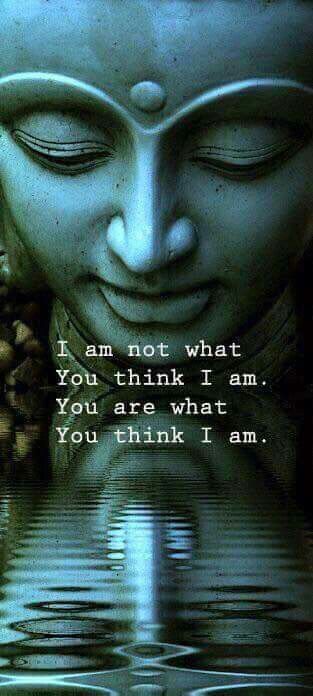 [uchcha--Budha
[uchcha--Budha